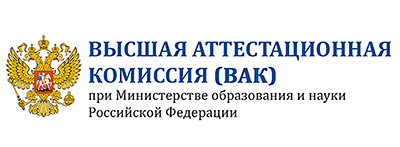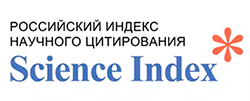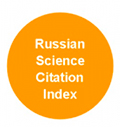HIV in trans*population: local case study
Abstract
The article presents the results of a sample survey of 224 trans* people carried out in 2017 by the Gender Dynamics Research (GDR) group. The survey revealed a very high degree of HIV prevalence of the group. In addition, the survey revealed a very low level of knowledge and awareness of HIV infection and methods of its spread in the population. Sources of knowledge about HIV are more or less standard. Attitudes toward the fact of infection and possible infection can be characterized as indifferent or inadequate, which is likely determined by severe stigmatization of the group and a high level of discrimination experienced by it. The state is not coping with the spread of HIV infection.
Downloads
References
Byrne J. (2014). License to Be Yourself. New York.
Demedetskaya YA., Denisov B., Sakevich V. (2017). Trudnosti formirovaniya semey transgenderami (na primere vyborochnogo issledovaniya) [Difficulties in the formation of families by transgenders (through the example of a sample study)]. Modern Science Success, 9(4), 218-224 (In Russ.).
Denisov B. (2006, June). The Russian HIV/AIDS Case Reporting System. Paper presented at the European Population Conference, Liverpool, United Kingdom (Session 303, HIV/AIDS).
Denisov B., Sakevich V. (2004). Dinamika epidemii VICH/SPID (The dynamics of the HIV / AIDS epidemic). Sociological Studies, 1, 75-85 (In Russ.).
Isayev D.D. (2016). Deconstruction of heteronormative matrix. Psychology 13(1), 9-26 (In Russ.).
Keegan C.M. (2018). Getting Disciplined: What’s Trans* About Queer Studies Now? Journal of homosexuality, 1-14.
Lagos D. (2018). Looking at population health beyond “male” and “female”: implications of transgender identity and gender nonconformity for population health. Demography, 55(6), 2097-2117.
Mendelevich V.D. (2018). O mnogodetnoy materi Yulii Savinovsikh, lishënnoy detey iz-za zhelaniya smenit’ pol (Tragicheskiye yuridicheskiye posledstviya nesovershenstva psikhiatricheskikh klassifikatsiy). [About the mother of a large family, Yulia Savinovsikh, deprived of children because of the desire to gender reassignment (the tragic legal consequences of the imperfection of psychiatric classifications)]. Neurological Bulletin 1, 5-14 (In Russ.).
Nicolazzo Z. (2016). ‘It’s a hard line to walk’: Black non-binary trans* collegians’ perspectives on passing, realness, and trans*-normativity. International Journal of Qualitative Studies in Education, 29(9), 1173-1188.
Popper K. (2005). Logika nauchnogo issledovaniya. [The Logic of Scientific Discovery]. Moscow: Respublika (In Russ.).
Rusanova N.E. (2008). Reproduktivnyye vozmozhnosti demograficheskogo razvitiya. [Reproductive opportunities of demographic development]. Moscow (In Russ.).
UNAIDS (2017). Global AIDS Monitoring 2018 Indicators for monitoring the 2016 United Nations Political Declaration on Ending AIDS.
VICH-infektsiya [HIV infection] (2018). Federal’nyy nauchno-metodicheskiy tsentr po profilaktike i bor’be so SPIDom [Federal Scientific and Methodological Center for the Prevention and Control of AIDS]. Informatsionnyy byulleten [Information bulletin], 42 (In Russ.).
Zdravomyslova Ye., Tomkina A. (2015). 12 lektsiy po gendernoy sotsiologii [12 lectures on gender sociology]. Saint-Petersburg (In Russ.).
























